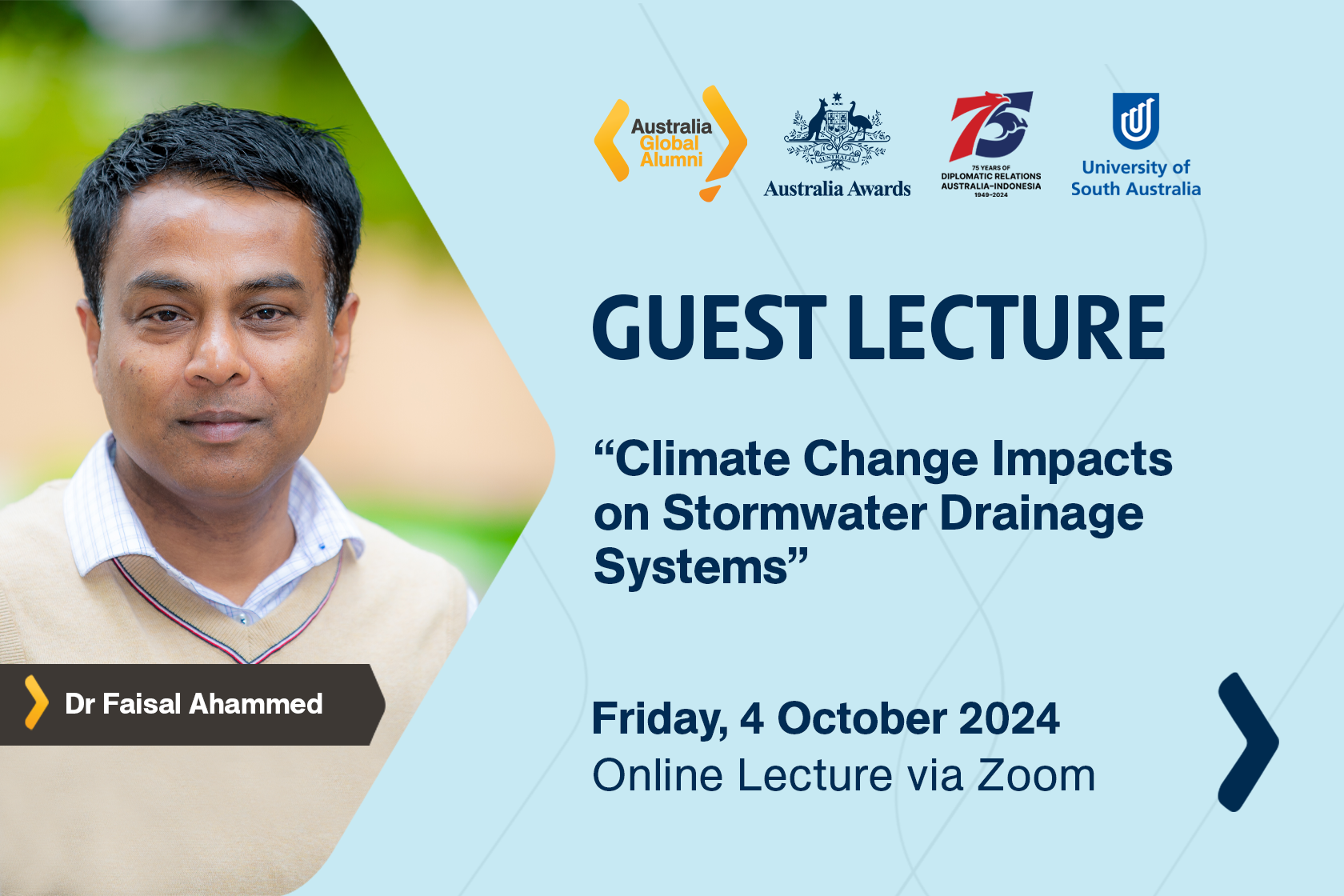
05 December 2025
Join Our Scholarship Information Session for Prospective Applicants from Equity Target Provinces
Have a strong interest in pursuing a Masters or PhD degree in Australia? Australia Awards Scholarshi... Read more
The Australia Awards are prestigious, transformational scholarships and short courses offered to emerging leaders for study, research and professional development in Australia

30 August 2024
 Join Our Lecture on “Climate Change Impacts on Stormwater Drainage Systems”
Join Our Lecture on “Climate Change Impacts on Stormwater Drainage Systems”
How prepared is our urban infrastructure to withstand the growing challenges of climate change? Join us for an engaging online lecture, “Climate Change Impacts on Stormwater Drainage Systems”, by Dr Faisal Ahammed from The University of South Australia. This insightful session will occur via Zoom on Friday, 4 October 2024, from 2:00 p.m. to 4:00 p.m. (Jakarta time).
The Australian Rainfall Runoff (ARR) guidelines were applied to assess the effects of climate change on rainfall intensities, while CSIRO’s Climate Future Tool (CFT) was utilised to predict Australia’s future climatic conditions. The study considered various greenhouse gas emission scenarios, rainfall, and temperature trends specific to South Australia. The CFT modelling predicted maximum temperature increases of 1, 2.25, and 3 degrees Celsius by 2030, 2060, and 2090, respectively. These temperature increases are expected to alter rainfall patterns, leading to a potential rise in rainfall intensity by 5%, 11.6%, and 15.8% over the same period.
The impact of these changes on urban drainage infrastructure was assessed by evaluating both traditional drainage systems and Water Sensitive Urban Design (WSUD) technologies. The results indicated that surface runoff and flow rates would increase across both drainage and WSUD systems. When analysing the RCP 8.5 scenario across different years, it was evident that neither system would have the capacity to manage the increased runoff volumes, revealing inadequacies in their initial designs. This suggests that the impacts of climate change on urban drainage infrastructure in South Australia could become significant under the RCP 8.5 scenario, with particular concerns around the capacity of soak-away systems, as highlighted by the peak flow increases observed in the MUSIC models.
Calling all graduates and scholars of Australian tertiary institutions from Indonesia interested in exploring the critical implications of climate change on our urban systems! RSVP using this link to secure your spot by Wednesday, 2 October. As a token of appreciation for your participation, attendees will receive an e-certificate.
For additional information about the lecture and our speaker, please click here. We eagerly await your meaningful engagement in this event.
Share this news on:
 Related News
Related NewsThis website uses cookies to improve your website experience. We may also use cookies to analyse website data so that we can improve our online services. To find out more visit our privacy policy.
